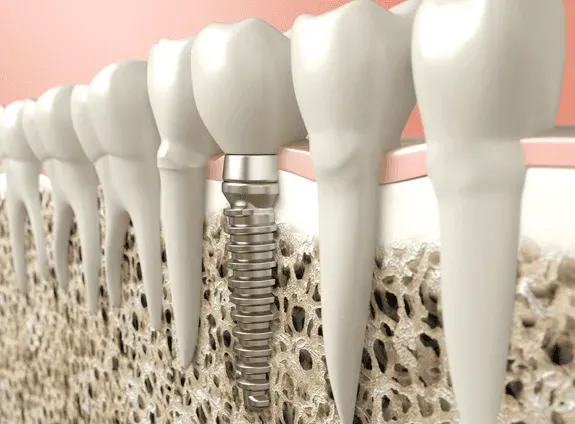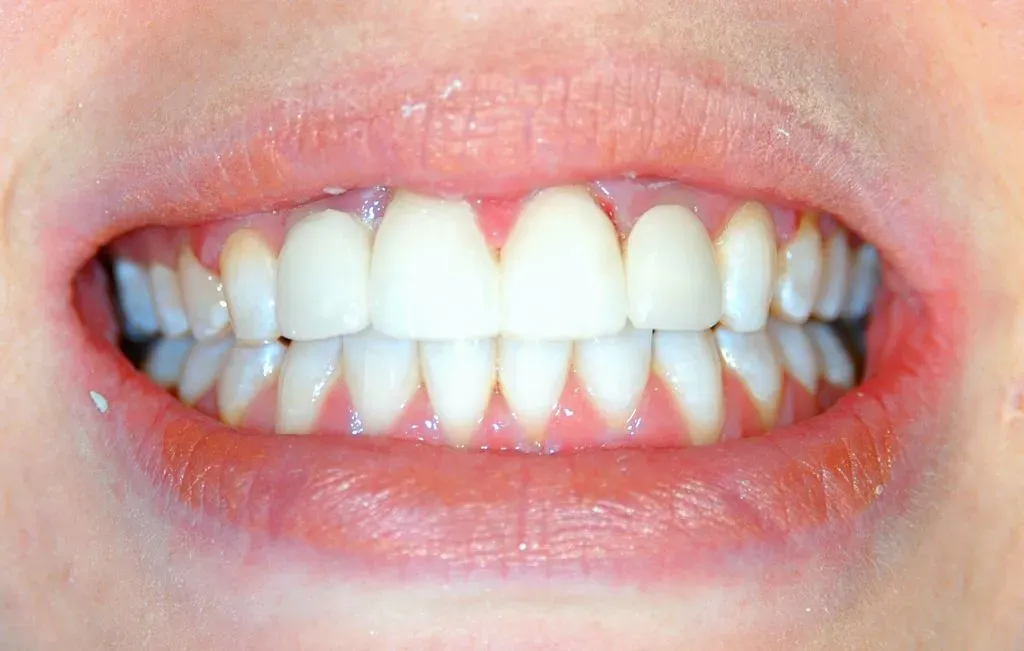Answers to 3 Common Questions About Dental Implants

If you have a missing adult tooth, you've probably thought about possible types of replacement. For a long time, most people with three or fewer consecutive missing teeth opted for bridges to fill in the gap. In the last three decades or so, more and more patients began to choose dental implants instead of bridges or dentures.
But how do you know if dental implants are right for you? In this blog, we give you the answers to three of the most common questions about this process to help you determine if you should ask your dentist about implants.
1. What are Dental Implants?
A Swedish orthopedic surgeon created the dental implant process in 1952. Today, dental implants are the standard solution to missing teeth. Each implant consists of two parts:
Base. Implants connect to the jaw via a permanent screw that fuses to the bone over time. These screws usually consist of medical-grade titanium, due to its durability compared to other metals.
Crown. Once the screw is in place, the dentist attaches a natural-looking crown to the base. Crowns usually consist of porcelain or another natural-looking, surgical-grade material. If the patient has more than one missing tooth in a row, the dentist may create a high-quality partial denture or bridge instead of a crown, and he or she will anchor it just like a crown.
When cared for properly, these dental implants can last for a patient's lifetime and will need only periodic adjustments and regular cleanings.
2. How long does the implant process take?
The dental implant process requires two separate surgical procedures, the first to place the screw and the second to anchor the crown. Overall, the entire procedure can take between six and eight months.
The first appointment usually takes about as long as a traditional filling. However, once your dentist places the screw, you may need three to six months for it to fuse to your jawbone.
When the screw becomes stable, you'll come back in to be fitted with an artificial tooth. This appointment may take slightly longer because your dentist will need to take a mould of your teeth and create the crown.
Depending on your dental office's resources, crown creation could take a single day or several weeks. However, the actual attachment process takes very little time.
3. How do Dental Implants differ from other treatments?
For patients who qualify, dental implants often offer the best solution for missing teeth. Unlike dentures or other surgical fixtures, like bridges, dental implants provide the following benefits:
- Allow the patient to eat all food types
- Do not require changes to the natural teeth around a gap
- Look and feel like natural teeth
- Maintain natural face and jaw shape
- Protect healthy, natural bone
- Require regular cleanings and occasional maintenance only
To qualify for dental implants, you need good oral and overall health. The procedure can be affected by some prescription medication, tobacco products and some health conditions. Talk to your dentist to find out if your medical history makes you compatible with implants.
If you think dental implants could help you speak, chew or smile normally and confidently again, ask your dentist about the procedure. He or she can determine whether you are a good candidate or not. And if you don't currently qualify for the procedure, your dentist can help you make changes to improve your oral health and overall candidacy.
Dental implants have helped thousands of Australians smile. Use the information in this article and the recommendations of your dentist to determine whether or not this procedure is right for your goals and situation.










